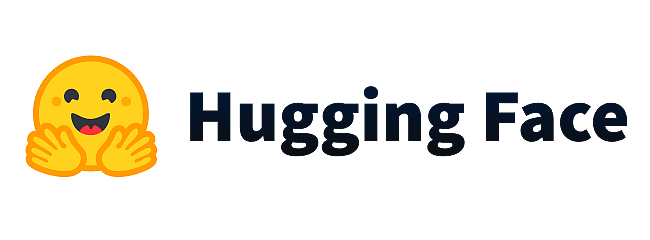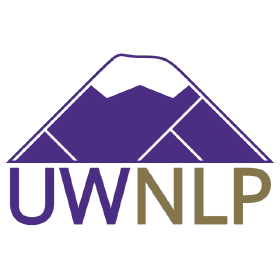The offical PyTorch implementation of Three-stream Hierarchical Transformer (THETA). Please refer to our paper for details. Unsupervised Learning of Hierarchical Conversation Structure. Bo-Ru Lu, Yushi Hu, Hao Cheng, Noah A. Smith, Mari Ostendorf. EMNLP 2022 Findings. [paper]
This code has been written using PyTorch >= 1.13 and HuggingFace >= 4.21.2. If you use any source codes included in this repository in your work, please cite the following paper. The bibtex is listed below:
@inproceedings{lu-etal-2022-unsupervised,
title = "Unsupervised Learning of Hierarchical Conversation Structure",
author = "Lu, Bo-Ru and Hu, Yushi and Cheng, Hao and Smith, Noah A. and Ostendorf, Mari",
booktitle = "Findings of the Association for Computational Linguistics: EMNLP 2022",
year = "2022",
publisher = "Association for Computational Linguistics",
}
Human conversations can evolve in many different ways, creating challenges for automatic understanding and summarization. Goal-oriented conversations often have meaningful sub-dialogue structure, but it can be highly domain-dependent. This work introduces an unsupervised approach to learning hierarchical conversation structure, including turn and sub-dialogue segment labels, corresponding roughly to dialogue acts and sub-tasks, respectively. The decoded structure is shown to be useful in enhancing neural models of language for three conversation-level understanding tasks. Further, the learned finite-state sub-dialogue network is made interpretable through automatic summarization.
The 8-state topology on CRAIGSLISTBARGAIN dataset. The thicker edges indicate higher levels of negotiation success; in contrast, the thinner edges represent lower levels. Due to space limitations, only 6 state summaries are shown. The detailed topology with all cluster and state summaries is in Appendix D of the paper. Overview of THETA conversation encoding. The text of each utterance text is encoded by BERT, and a 1-layer transformer further contextualizes utterance embeddings to generate the text vector U. For structure, utterances are mapped to K-means dialogue acts (DAs), which are input to an HMM to decode sub-dialogue states. 1-layer transformers are applied to sequences of DAs and sub-dialogue states, yielding cluster vector C and state vector S. The concatenation of U, C and S is fed into a linear layer to obtain the structure-enhanced vector for the predictive task. For simplicity, Emb. and Trans. stand for embedding and transformer, respectively.Create a hidden file named .env in the main directory and set the 2 paths as follows.
# the path to store data, model, and experiment results.
NFS_PARENT_DIR=[path to theta repo]/project_dirdocker run -u root -it --gpus all dapy/theta:v1.0 /bin/bash- Download Apptainer image at https://roylu-opensource.s3.us-west-2.amazonaws.com/theta/apptainer_image/app.sif
- You should be able to run the image on Singularity as well.
# Run apptainer image.
apptainer shell --bind [path of this repo] --workdir pwd --nv app.sifWe also provide the preprocessed data, structure, and trained models.
1-3 are provided in this github repository.
4-6 are provided in AWS s3. You need to download and uncompress the tar files.
Put all directories under the path $NFS_PARENT_DIR which you defined in the hidden file .env.
$NFS_PARENT_DIR will look like this.
.
├── assignments
├── data
├── embeddings
├── exp
├── pretrained_models
└── state_assignmentsYou can skip this step if you can use our pretrained models, embeddings, clusters, states in $NFS_PARENT_DIR.
- Pretrain models:
$NFS_PARENT_DIR/pretrained_models - Embeddings:
$NFS_PARENT_DIR/embeddings - Clusters:
$NFS_PARENT_DIR/assignments - States:
$NFS_PARENT_DIR/state_assignments
The pretrained models can be downloaded in $NFS_PARENT_DIR
# ABCD
# Trained model will be stored in
# $NFS_PARENT_DIR/exp/abcd/pretrain/bert_init_from_bert-base-uncased_job_name-bash/seed-42/checkpoint-5000/fp32
# Move the trained model to $NFS_PARENT_DIR/pretrained_models/abcd/bert-base-uncased-abcd-wwm
bash pretrain/abcd/bert.sh# Craigslist
# Trained model will be stored in
# $NFS_PARENT_DIR/exp/craigslist/pretrain/bert_init_from_bert-base-uncased_job_name-bash/seed-42/checkpoint-5000/fp32
# Move the trained model to $NFS_PARENT_DIR/pretrained_models/craigslist/bert-base-uncased-craigslist-wwm
bash pretrain/craigslist/bert.shbash data_scripts/abcd.sh --task_name pretrain
python prepare_structure/cluster/prepare_cluster_abcd.pybash data_scripts/craigslist.sh --task_name pretrain
python prepare_structure/cluster/prepare_cluster_craigslist.pyNote: Finishing clustering step is required before proceeding this step.
bash data_scripts/abcd.sh --task_name pretrain
python prepare_structure/state/prepare_state_abcd.pybash data_scripts/craigslist.sh --task_name pretrain
python prepare_structure/state/prepare_state_craigslist.py# ABCD
export SEED=21; bash train_scripts/finetune/abcd/cls-cluster-state-structure-hibert.sh --embedding_name bert_mean_pooler_output --num_clusters 60 --num_states 12# CraigslistBargains
export SEED=21; bash train_scripts/finetune/craigslist/cls-cluster-state-structure-hibert.sh --embedding_name bert_mean_pooler_output --num_clusters 14 --num_states 8Download the Action-Based Conversations Dataset (ABCD) dataset from the official repository (Chen et al., 2021). abcd_v1.1.json.gz.
Download the preprocessed pickle file (strategy_vector_data_FULL_Yiheng.pkl) of CraigslistBargains dataset from Google drive provided in DialoGraph repository (Joshi et al. 2021).
Feel free to create an issue or send email to roylu@uw.edu.
copyright 2022-present https://nlp.borulu.com/
Permission is hereby granted, free of charge, to any person obtaining a copy
of this software and associated documentation files (the "Software"), to deal
in the Software without restriction, including without limitation the rights
to use, copy, modify, merge, publish, distribute, sublicense, and/or sell
copies of the Software, and to permit persons to whom the Software is
furnished to do so, subject to the following conditions:
The above copyright notice and this permission notice shall be included in all
copies or substantial portions of the Software.
THE SOFTWARE IS PROVIDED "AS IS", WITHOUT WARRANTY OF ANY KIND, EXPRESS OR
IMPLIED, INCLUDING BUT NOT LIMITED TO THE WARRANTIES OF MERCHANTABILITY,
FITNESS FOR A PARTICULAR PURPOSE AND NONINFRINGEMENT. IN NO EVENT SHALL THE
AUTHORS OR COPYRIGHT HOLDERS BE LIABLE FOR ANY CLAIM, DAMAGES OR OTHER
LIABILITY, WHETHER IN AN ACTION OF CONTRACT, TORT OR OTHERWISE, ARISING FROM,
OUT OF OR IN CONNECTION WITH THE SOFTWARE OR THE USE OR OTHER DEALINGS IN THE
SOFTWARE.



